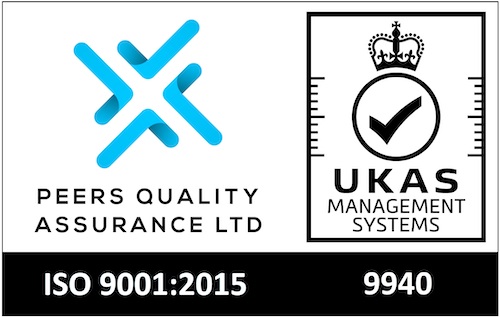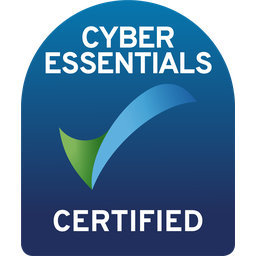What is a spent conviction?
What is a spent conviction?
More so than ever, a person’s past can often play a significant role in determining their future opportunities. This can be especially true when it comes to employment. Many job applicants can worry about the impact of their criminal history on their chances of securing a job. This concern is understandable, as a criminal record can create significant barriers in the job application process. However, in certain situations, individuals with past convictions may have the opportunity to benefit from what is known as a “spent conviction.”
Understanding what a spent conviction is and how it could impact someone’s ability to apply for a job is key for individuals that need a DBS check for an employment position or a volunteer role.
Let’s explore what a this type of conviction is and find out what it can mean for a Basic DBS check or for standard and enhanced DBS checks and delve into how they can affect a person’s ability to meet certain standards and enhanced requirements when applying for employment.
Understanding the concept of spent convictions
Spent and unspent convictions are terms used in the legal system to determine how long a person’s criminal record will be visible to others. A spent conviction refers to an offence that occurred in the past and has been deemed “spent” under the Rehabilitation of Offenders Act 1974. Simply put, a spent conviction is not automatically visible to the public, potential employers, or other entities conducting a criminal record check.
The concept of spent convictions is important for individuals that have made mistakes in their past but have since worked towards their rehabilitation. It understands that people can change and deserve a chance to rebuild their lives without being haunted by their past actions. This allows individuals that have served their time or paid their dues to reintegrate into society and move forward positively.
However, certain offences cannot ever be considered spent. A serious crime that results in a prison sentence of over four years will typically remain unspent convictions and will be visible on a person’s criminal record indefinitely. This ensures that offences that pose a significant risk to public safety are always taken into account, especially when considering factors such as employment and volunteer opportunities or sensitive roles.
Spent convictions strike a balance between giving individuals a fresh start while still recognising the importance of public safety. Understanding the difference between and the implications of spent and unspent convictions is key for both offenders and those who may come into contact with their records.
The legal framework behind spent convictions
In terms of job applications and criminal record checks, spent convictions refer to a crime in a person’s past that has been deemed “spent” or no longer active. It’s a conviction or caution that no longer needs to be disclosed after a certain period of time has passed.
In many jurisdictions, the legal framework surrounding spent convictions is established to strike a balance between an individual’s right to privacy and their potential employer’s need for information. Typically, the time period for a conviction to become spent ranges from 6 months to 12 months, depending on the severity of the offence. After this period, the individual is not obliged to disclose that particular conviction or caution on job applications or during background checks.
How do spent convictions affect individuals?
These types of convictions can have a significant impact on individuals, impacting various aspects of their lives. When a conviction becomes spent, it means that it is no longer required to be disclosed in most circumstances.
Employment Opportunities
The presence of a spent conviction can limit employment opportunities for individuals. Many employers, especially those requiring background checks, may request a basic DBS (Disclosure and Barring Services) check. This check reveals unspent convictions and, in some cases, spent convictions that are relevant to the role being applied for. The presence of a spent conviction might cause an employer to question an individual’s honesty or reliability, potentially leading to discrimination during the hiring process.
Personal Life
Aside from employment, spent convictions can also impact an individual’s personal life, making to harder to play an active role in their local communities. While the aim of convictions legislation is to provide rehabilitation and encourage reintegration into society, the lingering effects can be challenging. While the conviction may not be legally required to be disclosed, its impact can still be felt on an individual’s reputation and opportunities and it’s important for individuals with spent convictions to be aware of their rights and to understand the rules regarding disclosure, ensuring they make informed decisions about their future.
Implications of spent convictions on employment
The issue of spent convictions and their impact on employment is a complex and controversial one. A spent conviction refers to a criminal conviction that no longer needs to be disclosed to employers after a certain period of time.
With basic disclosure required for many different types of employment, a spent conviction disclosed during the recruitment process could potentially affect an individual’s chances of securing the job. Employers may have reservations about hiring someone with a criminal record, regardless of how old or minor the offence may have been.
Certain professions, such as work with children, teaching social work, have stricter regulations when it comes to past convictions. A spent conviction might not be taken into account if an individual is applying for a position that directly impacts the safety or wellbeing of others. This is because employers have a legal obligation to ensure the protection of vulnerable individuals, and any criminal history, even if it is spent, could be seen as a risk.
Please note that not all convictions are equal. Serious offences, or those that resulted in a prison sentence, are likely to have a lasting impact on employment prospects, regardless of whether they are deemed spent or not. Employers will always consider the relevance and gravity of the offence when making hiring decisions, and it is critical for individuals with criminal records to be transparent and honest during the application process.
So, while spent convictions may provide individuals with a fresh start and protect their privacy, it’s not a guarantee of unrestricted access to employment opportunities. The implications on employment will vary depending on the nature of the conviction and the specific requirements of the role being applied for. It is important for individuals to be aware of the potential limitations and seek professional advice if in doubt about disclosure requirements.
Disclosing spent convictions on DBS checks
DBS (Disclosure and Barring Service) checks are conducted to ensure the safety and security of vulnerable individuals, such as children and the elderly.
A basic DBS check typically provides information about an individual’s unspent convictions, cautions, reprimands, and warnings. Unspent convictions are those that have not yet reached a certain time frame for them to become “spent.” Spent convictions, on the other hand, are older, less serious offences that no longer need to be disclosed in most circumstances.
However, in some cases, potential employers may require individuals to disclose spent convictions, especially if the job involves working with vulnerable individuals. These will be disclosed on Standard and Enhanced DBS checks.
More information can be found out on the UK Government website here








